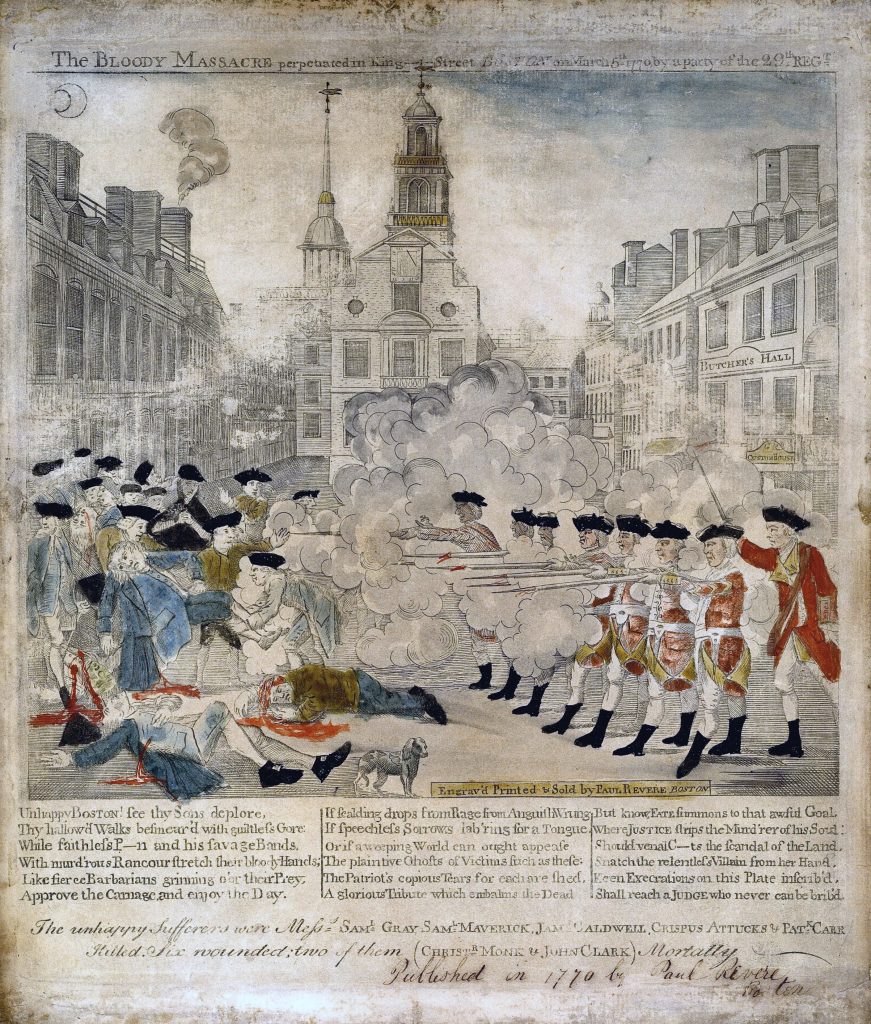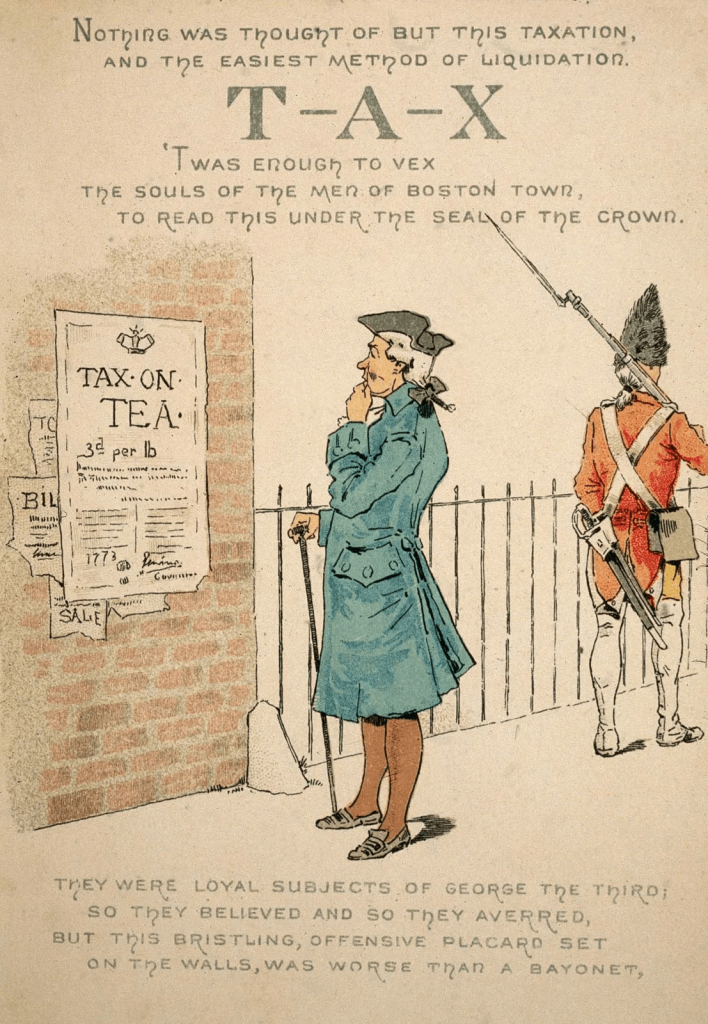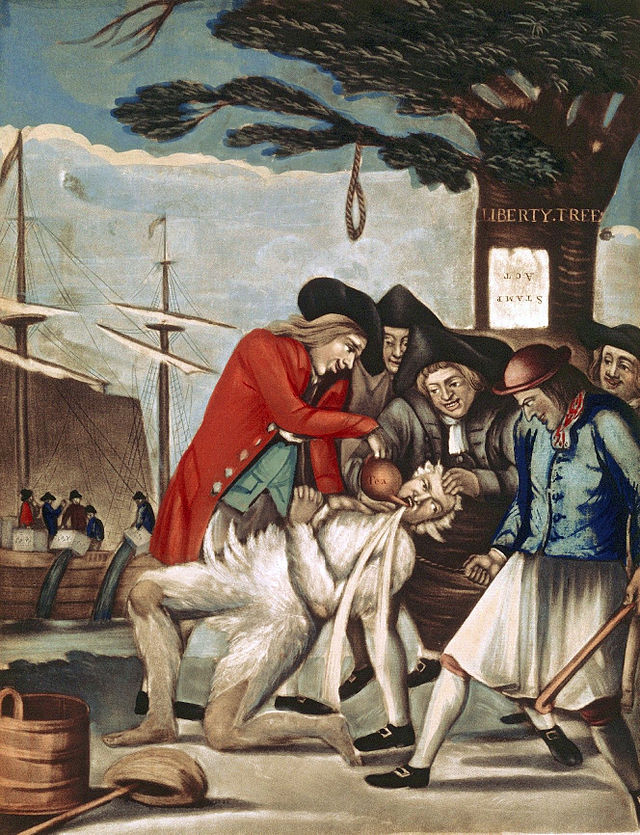Contents
Contents
The Tea Act of 1773 was a law implemented by the British parliament, which gave the British East India Company an effective monopoly on tea sold in the Thirteen Colonies.
In this article, we’ve explained what the Tea Act did, why it was implemented, and the effects it had.
Historical context
In the late 1760s and early 1770s, tensions between American colonists and the British government were rising.
Beginning in 1764, the British placed new taxes on their overseas colonies, in an attempt to raise revenue. They clamped down on illegal smuggling, and tried to encourage trade with British companies.
The colonists were outraged at what they considered British overreach. Although most of the new taxes were not large, Patriots believed that the British did not have the right to implement whatever taxes they wanted in the colonies, since the colonists had no representation in British parliament.
Backlash against the Stamp Act of 1765 was particularly extreme, leading the British to repeal the law a year later. Colonial governments refused to abide by the Quartering Act of 1765, and the colonists organized trade boycotts of British goods in response to the Townshend Acts of 1767-68.
Anti-British sentiment was at its highest in Boston, where colonial merchants and smugglers found themselves subject to the arbitrary search and seizure of their goods by British customs officers. This escalation in conflict eventually led to the Boston Massacre in March 1770, where five civilians were killed by British soldiers.

The Townshend Acts were mostly repealed in 1770, but two aspects remained:
- The tax on tea imported into the colonies.
- The reduction in tax on British tea imported into England.
This tax reduction on tea imported into England was designed to save the East India Company, which was struggling financially.
At the time, tea had to be imported into England before it could be exported to the colonies. By cutting the import tax on tea going into the United Kingdom, this increased the company’s profits, and made their tea cheaper than the tea smuggled into the colonies from other countries.
Purpose of the Tea Act

As a result of the tax reduction, the East India Company began ramping up its tea production. However, sales were not as strong as expected in England or the colonies, since Dutch tea was still cheaper, and it ended up with a huge oversupply of tea in its London warehouses.
To help the company offload its huge supplies of tea, and avoid financial collapse, the British parliament passed the Tea Act on May 10, 1773.
Under the Tea Act, the British East India Company could export tea directly to the colonies, rather than having to go through Great Britain first, helping the company avoid double taxation.
Also, tea shipped out from Britain was exempt from export duty. However, the tax collected by the British when tea was imported into America remained in place.
The purposes of the Tea Act were to:
- Help improve the financial position of the East India Company.
- Raise revenue for the British government by lowering the price of British tea, undercutting foreign suppliers, such as the Dutch.
- Assert the British government’s right to tax the colonies. The tax on tea imported into America was relatively small – it was mostly designed to demonstrate that the British still controlled the Thirteen Colonies.
Effects
- The Tea Act effectively granted a monopoly to the British East India Company over the American tea market, putting colonial merchants, smugglers, and traders out of business.
- The colonists were infuriated by the Tea Act. Although the tax was not large, they refused on principle to pay the Townshend tea tax, as they thought that the British had no right to tax the colonies without their consent.
- The Act helped to unify resistance against the British, turning more people from the Loyalist to the Patriot side.
Colonial reaction
There were widespread protests and acts of resistance in response to the Tea Act, leading to a significant increase in tension between the Patriots and Loyalists.
In some ports such as New York, tea was shipped back to Britain, or left in the port by the colonial authorities, which was illegal under British law.
On December 16, 1773, members of the Sons of Liberty boarded an East India Company ship docked in Boston Harbor, and dumped more than $1m worth of tea into the sea. This famous incident became known as the Boston Tea Party.
Protests and unrest continued, especially in major port cities like Boston. On January 27, 1774, a British customs officer was tarred and feathered by an angry mob, and forced to drink tea.

British response and fallout
The British were appalled by the colonists’ actions. They closed Boston Harbor, and introduced a series of punitive laws known as the Coercive Acts, or Intolerable Acts, in 1774. These acts placed more restrictions on the colonists, and were considered extremely unfair, leading to an increased escalation in tensions.
The colonists increasingly realized that they had to respond to British overreach. In 1774, the First Continental Congress was held in Philadelphia, and it was decided to petition King George III of England about colonial grievances, but the petition was ignored.
Facts
- The Tea Act was one of the first sparks of the American Revolution. It caused the Boston Tea Party, which was the first major act of defiance by the American colonists that received widespread attention, and significantly escalated the conflict.
- The Tea Act was ultimately ineffective. While it helped alleviate some immediate financial pressures by enabling the British East India Company to offload surplus tea, it did not solve the company’s long-term financial problems.
- After the American Revolution started, the Tea Act was effectively ignored. It was only officially repealed in 1861.
- Apart from Boston, other colonies also protested against the Tea Act. For example, ships carrying tea were also turned away or had their tea destroyed in New York, Philadelphia, and Charleston.
- The Tea Act was effectively the world’s first corporate bailout – the act was designed to save the East India Company from bankruptcy.
- 342 chests of tea were dumped into the sea during the Boston Tea Party.


